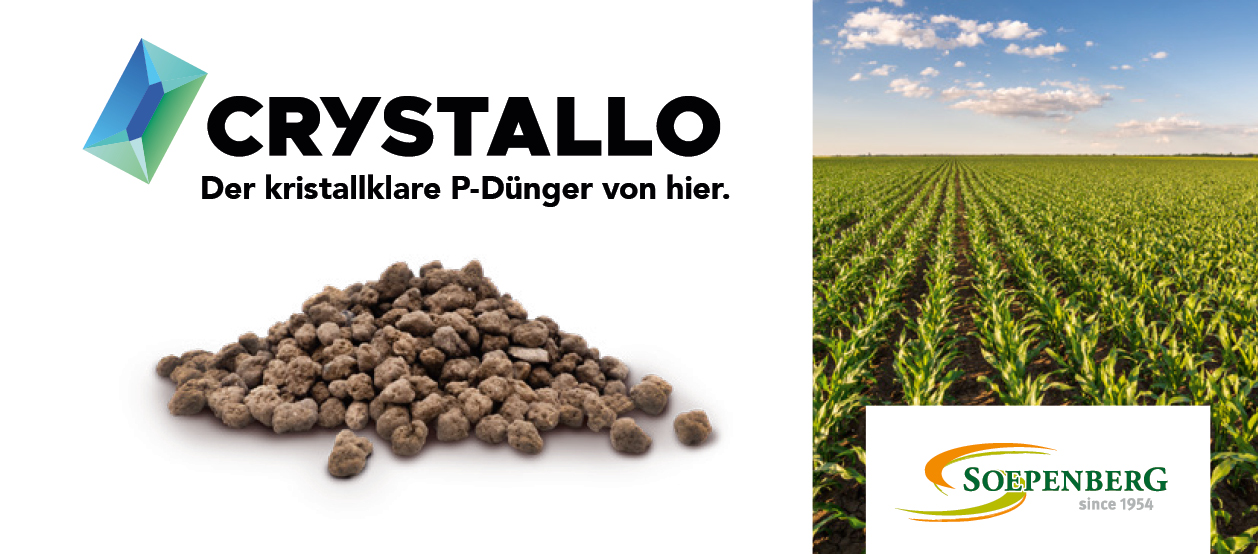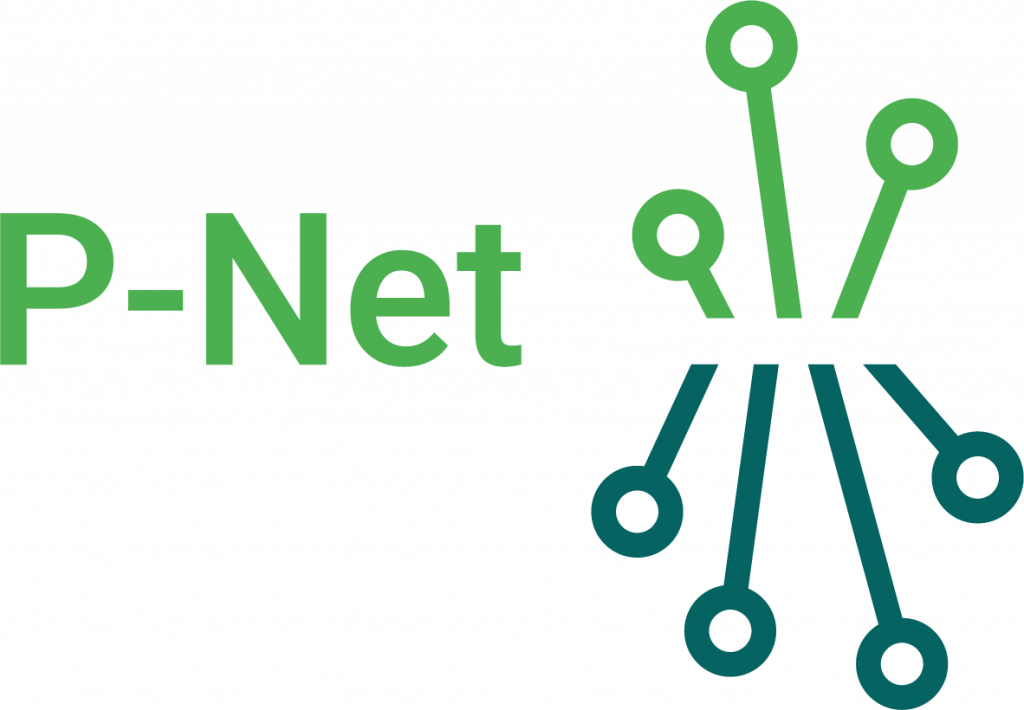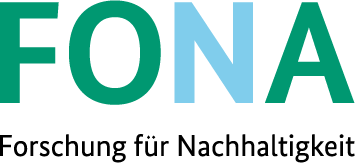Phosphorus recycling product struvite in a long-term test in Nettlingen near Hildesheim
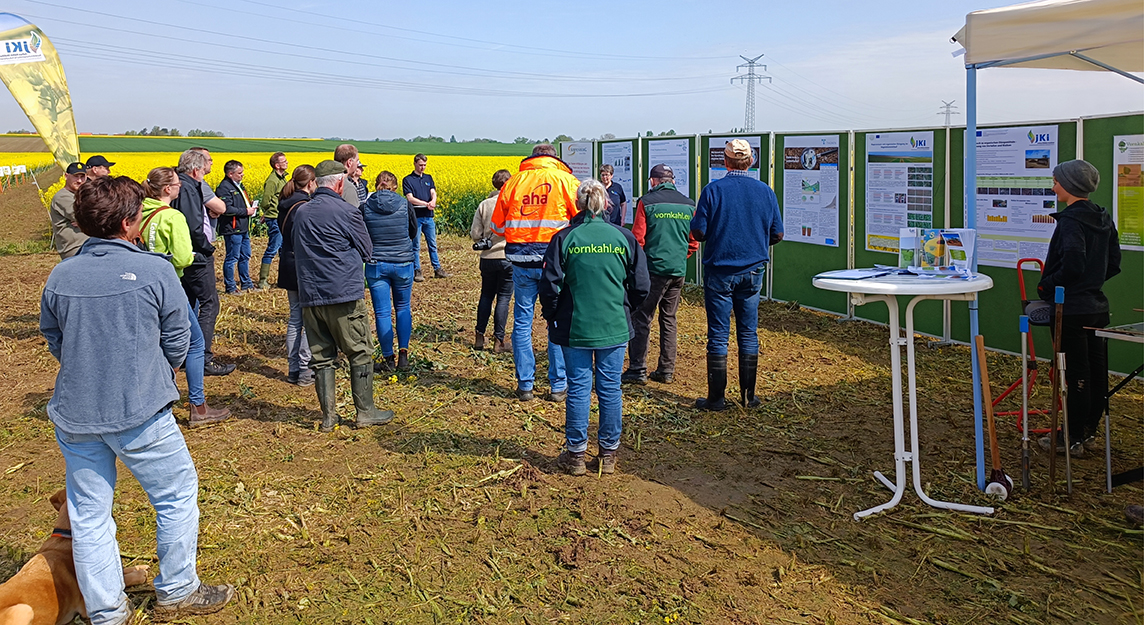
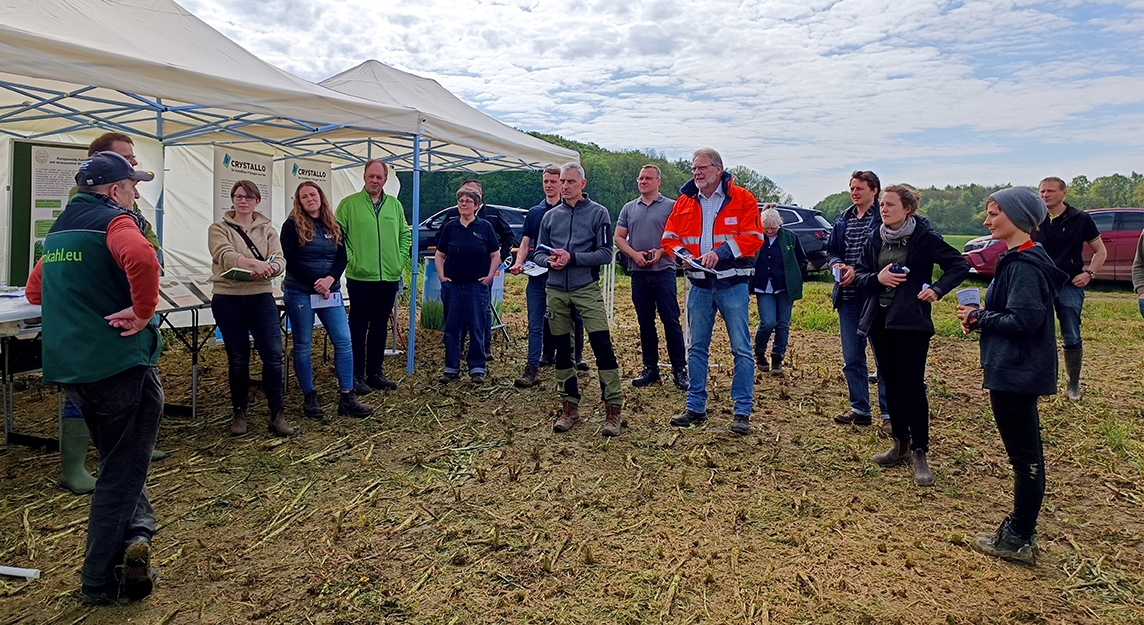
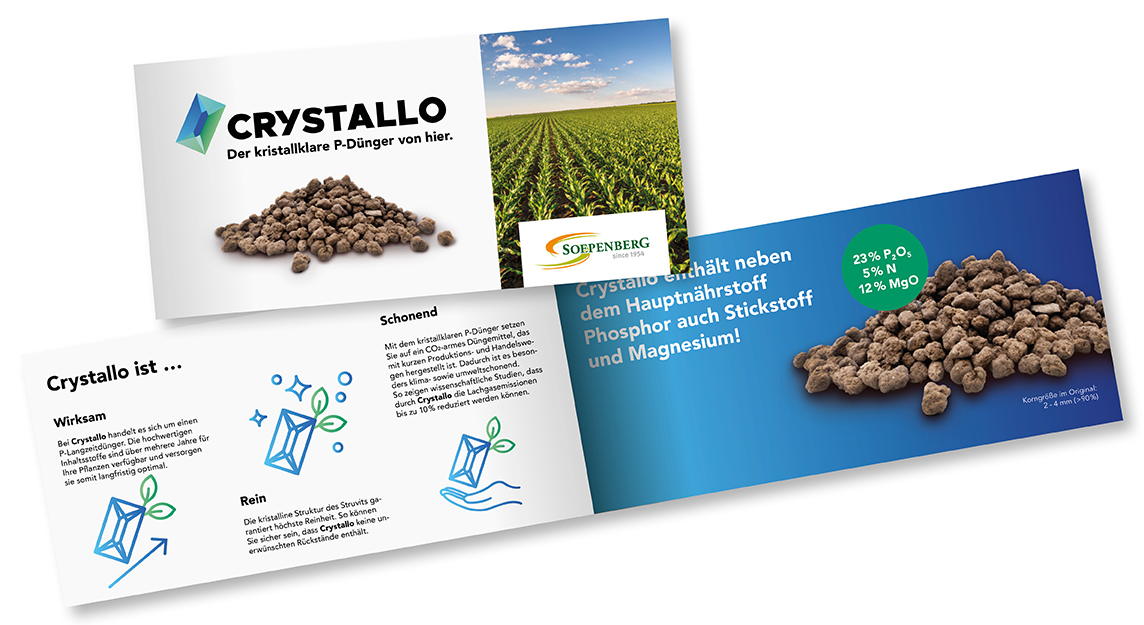
The Julius Kühn Institute (JKI) is currently conducting field experiments with fertilisers made from the phosphorus recycling product struvite. JKI, a partner in the RePhoR collaborative project P-Net, recently invited visitors to view the permanent experiment on a practice farm in Nettlingen near Hildesheim – the magazine Beckmann Verlag GmbH & Co. KG (contractor) reported.
Overall, the long-term phosphorus (P) and magnesium fertilisation effect of struvite will be investigated over a period of nine years on the plots in Nettlingen. The aim is to enable the young plants to develop P through root activity. As the soil is already well supplied with P, only maintenance fertilisation will be applied. However, initial results show that struvite fertilisation enables the plant to extract phosphorus from the soil just as well as a water-soluble commercial fertiliser such as the widely used DAP.
The testing of the struvite fertiliser, which will be marketed under the brand name “Crystallo”, is part of the BMBF-funded research project “Establishment of a network for resource-efficient phosphorus recycling and management in the Harz and Heath region” (P-Net). The researchers are also investigating the market opportunities for struvite fertilisers. A key factor here is the packaging of the fertiliser in standardised quality. By setting up a struvite network, P-Net aims to contribute to the establishment of further developed, optimised and promising processes and measures for struvite upgrading at other locations on the national and international market.

